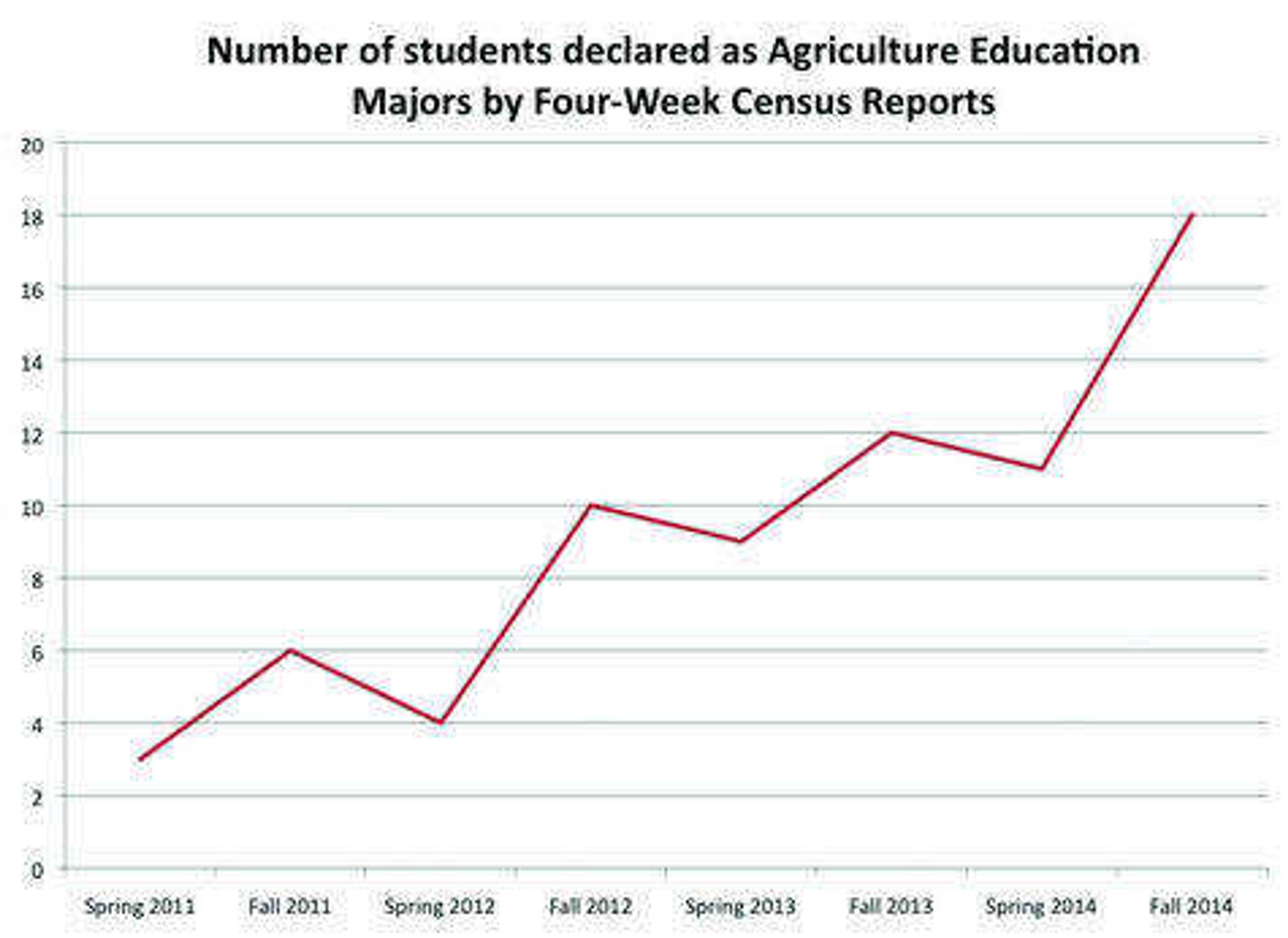Agriculture Education is a relatively new area of study at Southeast Missouri State University now in its fifth year, mostly thanks to the efforts of agriculture professor David Mauk.
Mauk spearheaded the effort to get Southeast to offer agriculture education as a degree.
"Long and arduous," Mauk said about the process to get a new area of study offered at Southeast.
"It takes a great deal of work to put something like this together," Mauk said.
A 90-page document had to be approved at the university level, as well as the state level, as did a needs assessment, Mauk said.
The needs assessment serves as a gauge to see if there is going to be a demand for the new area of study.
"You have to make a guess [in the needs assessment] at what kind of numbers you're going to have in terms of student interest. I had indicated that at the five-year level, I wanted to have 20 people in this major," Mauk said. "Luckily, we had 20 people in the major at the four-year mark."
Mauk attributes this high level of interest in agriculture education to the National FFA Organization's enrollment numbers at the high school level, which he said goes back to high school agriculture teachers doing a fantastic job of getting students involved in FFA.
"The National FFA Organization is at the high water mark in terms of membership," Mauk said.
"I think our numbers are going to continue to grow. We're serving a population at this point in time, southeast Missouri, that have been underserved," Mauk said.
Prior to Southeast offering the degree, the nearest place to get such a degree was the University of Missouri.
Two former Missouri state FFA officers have enrolled in the program at Southeast, and Mauk said that speaks to the trust high school students are putting in Southeast.
"When you're attracting those kids that are that involved in FFA during their high school years to this university, that says something," Mauk said.
Mauk said the need for an agriculture education major at Southeast comes from the fact that agriculture is a diverse field, with many aspects that must be mastered for someone to be a quality teacher.
Mauk said it would be hard for someone to major in education, take some agriculture classes and be a quality agriculture teacher and FFA adviser at a high school.
He said that if Southeast didn't have the agriculture education major and someone were to try that, it would "be a focus on the education side of things, and taking a few ag classes doesn't give you the background that you need to actually have a successful career as an ag educator."
Agriculture education students take some classes with other education majors. But they also take classes that focus on teaching agriculture and all the different facets of agriculture.
Rusty Allgire, a junior agriculture education major from Fredericktown, Missouri, said that is one of the most important things about the degree.
"With ag education, there is more content that has to be presented to us. If you were going to be a history teacher, you would take a bunch of history classes, but in ag, you have to have ag history, animal science, plant science, soils. There is so much variety, it all has to be covered," Allgire said.
"There's another class we take, Program Planning," Allgire said. "It's basically how to run an FFA chapter as an adviser."
"It's different because there's a lot more involvement. You're not just inside of a classroom," junior agriculture education major Matt Bloes said.
Bloes said having the program at Southeast helps people who grew up locally and know the area move on into teaching positions in southeast Missouri.
"It's important because it's around here, and people can get all their education around here versus having people from across the state get a degree and wanting to come back here and teach," Bloes said.
So far, four students have graduated from Southeast with a degree in agriculture education, Mauk said.
One is set to graduate in December, and three more will graduate in May, Mauk said.






